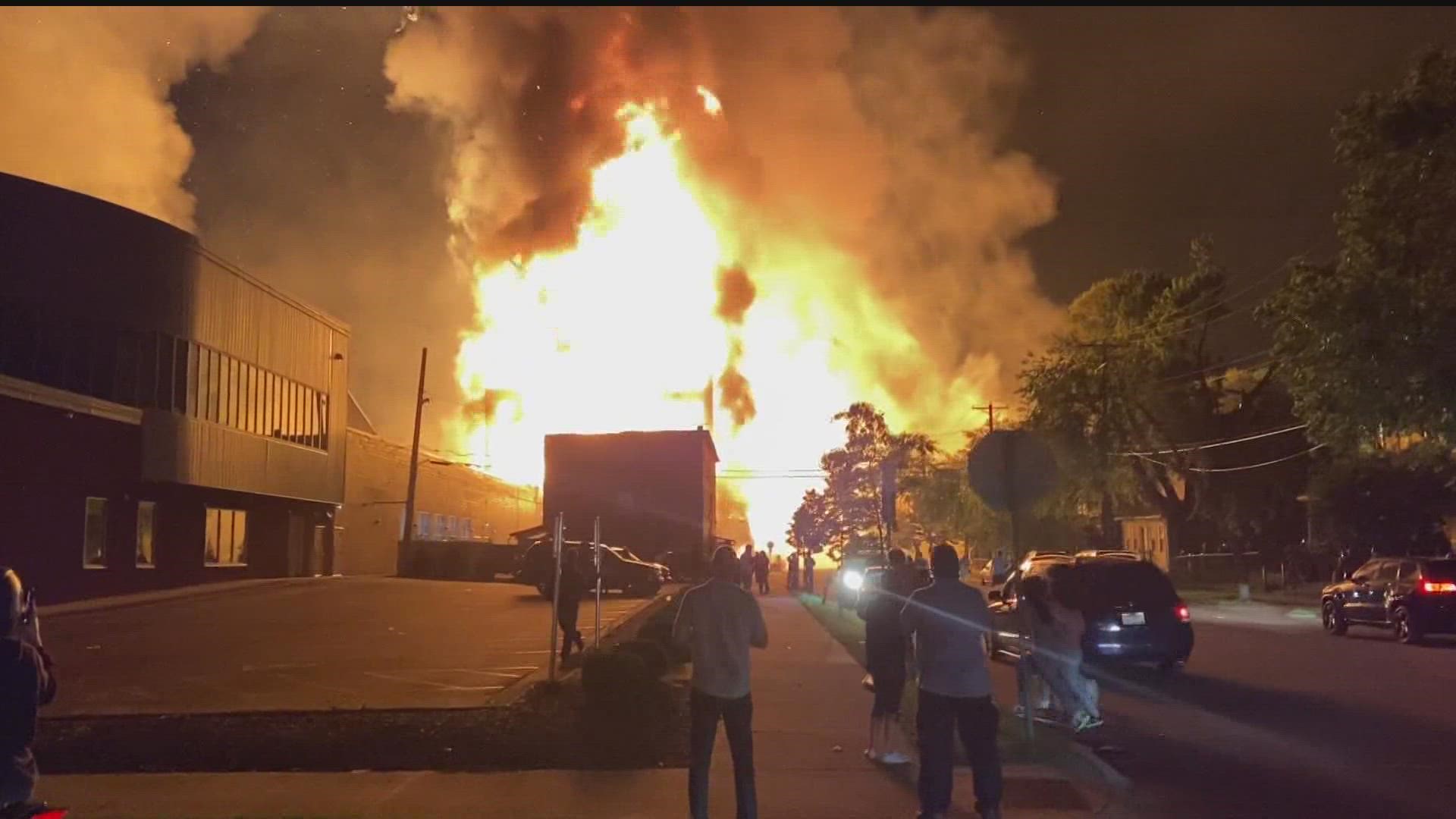MINNEAPOLIS — The Minnesota Department of Public Safety (DPS) is sharing the final version of an independent report on how the state responded to weeks of civil unrest following the murder of George Floyd in Minneapolis, and potential changes that could make law enforcement more effective in dealing with future incidents.
DPS Commissioner John Harrington released the report, conducted by Wilder Research, on Thursday. In a letter to Gov. Tim Walz, Harrington called the unrest and rioting that followed Floyd's death at the hands of Minneapolis officer Derek Chauvin "unexpected and unprecedented."
"The State responded with unparalleled state resources, including every member of our Minnesota State Patrol and Conservation Officers from the Minnesota Department of Natural Resources in a coordinated effort that linked over 80 different law enforcement agencies from around the state," Harrington recalled. "This joint response and coordination ultimately restored order and ended the civil unrest."
But in the process of restoring order, law enforcement faced accusations of using heavy handed and violent tactics, being unresponsive to community needs and responding slowly or not at all to crisis situations.
In the report's executive summary Wilder notes how vigils and peaceful protests in the wake of Floyd's murder evolved within 24 hours into violence and destructive behavior in parts of Minneapolis and St. Paul that included looting and arson. Researchers say local first responders were either too overwhelmed to respond to many calls for help, or couldn't safely access those who needed aid.
Eventually, the Governor was called upon to activate a response that included troopers from the State Patrol, soldiers from the Minnesota National Guard, and field agents from the DNR, among other agencies.
Wilder Research reviewed media coverage, examined state documents and conducted interviews with state personnel, spoke with impacted community groups and inside informants, and consulted with a nationally recognized law enforcement expert.
The following are key recommendations made to the state by researchers:
- Strengthen multi-agency coordination and communication
- Develop and comply with law enforcement standards, policies and training for greater consistency among law enforcement agencies across the state
- Use a multi-tiered response to address situations of civil unrest that includes differentiating between peaceful protestors and those engaging in unlawful activity
- Engage in pre-planning efforts to improve processes for managing operational, tactical, and logistical considerations
- Strengthen communication between state and local law enforcement, elected officials, media and the public
- Coordinate with community members directly affected by civil unrest
- Work to build positive relationships and trust between law enforcement and communities, especially communities affected by civil unrest
- Enhance diversity and inclusion efforts
- Acknowledge and work to address the root causes of civil unrest
"This examination of the state of Minnesota’s response to one of the most challenging and unprecedented times in the state’s history provides an opportunity to learn from what happened and do better to support and protect communities, especially during periods of civil unrest," Wilder research concluded.
With local agencies like the city of Minneapolis referenced in the report, KARE 11 reached out to Mayor Frey's office for comment. A spokesperson released the following statement: "Mayor Frey looks forward to continuing to build a more collaborative approach to emergency response with State officials.”
The reports also notes things that the multi-agency state response team did well, including effective use of mobile field force units, intelligence gathering, regular briefings for media and citizens and enacting curfew to reduce violence and damage to local communities.
To read the entire Wilder Research report and recommendations, click here.
Watch more on the Trial of Derek Chauvin:
Watch the latest coverage on the death of George Floyd and the trial of Derek Chauvin in our YouTube playlists:

